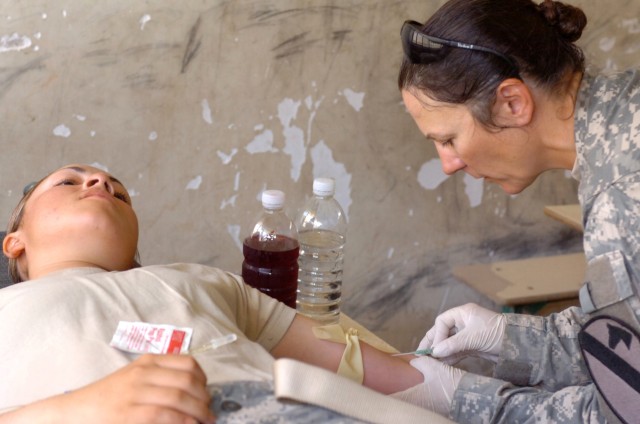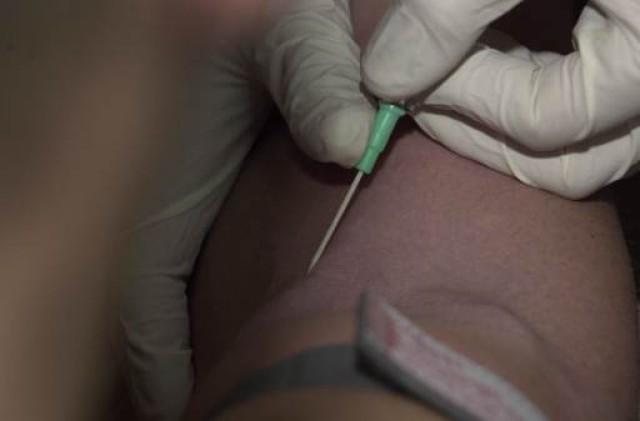FORT JACKSON, S.C. (Army News Service, Sept. 24, 2007) - The Army is about to change the way it ensures Soldiers injured on the battlefield receive access to life-saving techniques.
"Soldiers who were recently redeployed, and those who are currently deployed, told us that the first 10 minutes are the most critical for keeping a wounded Soldier alive," said Fort Jackson's Deputy Commander Col. Kevin Shwedo.
Beginning Oct. 1, Soldiers entering Basic Combat Training will receive Combat Lifesaving Training and be CLS certified before graduation. The change adds seven-and-a-half hours to the current curriculum.
Soldiers will learn how to perform advanced first aid and conduct potentially lifesaving procedures - from controlling bleeding, conducting CPR and reintroducing fluids into the body - to keep a serious injury from worsening until professional medical help arrives.
"That means you are going to have to start an IV in your buddy, and your buddy is going to have to start one in you," Col. Shwedo said.
The deputy commander said the change has two benefits.
"One, we are training Soldiers on mission-essential tasks that will keep them and their buddies alive in combat," he said. "Not only will they be able to save a life, but they will have the confidence that their buddies can do the same for them."
The second benefit is stress inoculation.
"There are very few things in life more stressful than watching a newly trained person put a catheter in your arm," Col. Shwedo said. "Almost as stressful is introducing a catheter into your buddy's arm because you don't want to get it wrong."
Introducing artificial stress in BCT is thought to prepare Soldiers for the stressors of war, but Col. Shwedo said that stress should be directly related to what Soldiers endure in war.
"Yelling at a person at the top of your lungs for five minutes does virtually nothing. Human nature says 'I will shut you down in the first 30 seconds,' so I've just wasted the last four-and-a-half minutes of my life," Col. Shwedo said. "Whereas, if I put a Soldier in a stressful environment that has something to do with keeping him or her alive in combat, or killing the enemy, it makes him that much more successful."
Previously, only 20 percent of Soldiers in each unit were required to be Combat Lifesaver certified.
"At the end of the day we want to make sure we have a Soldier who is proficient in a few critical tasks - weapons proficiency, discipline, being physically fit, confident he or she can save a life on the battlefield and equally confident that their buddy can save their life," Col. Shwedo said.
(Mike A. Glasch writes for the Fort Jackson "Leader.")




Social Sharing